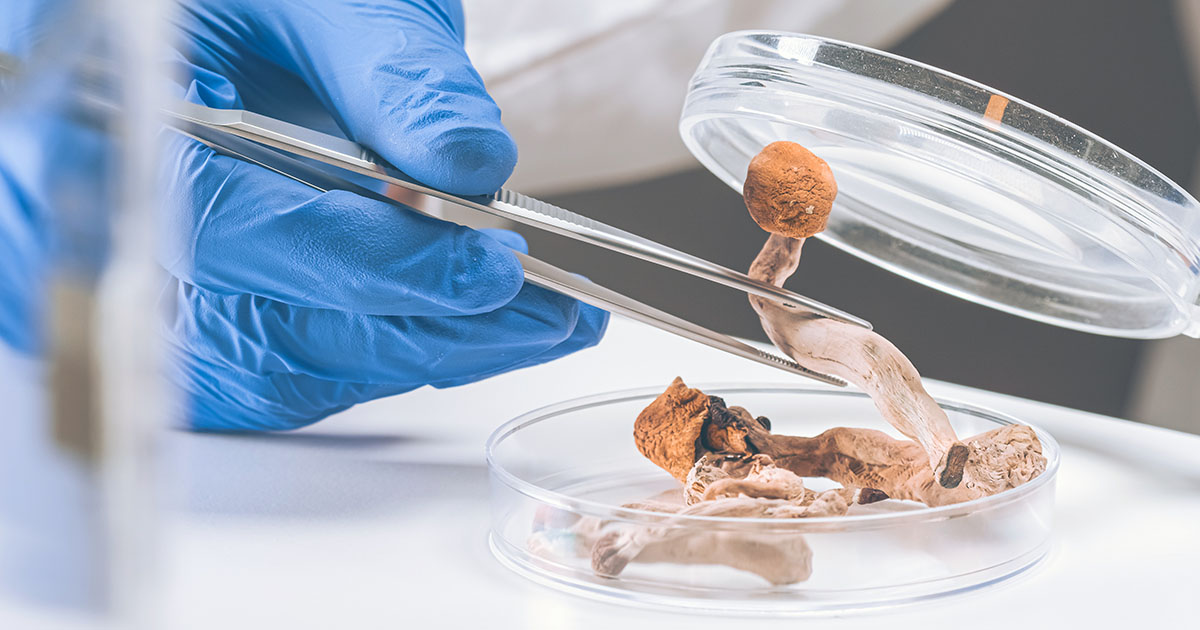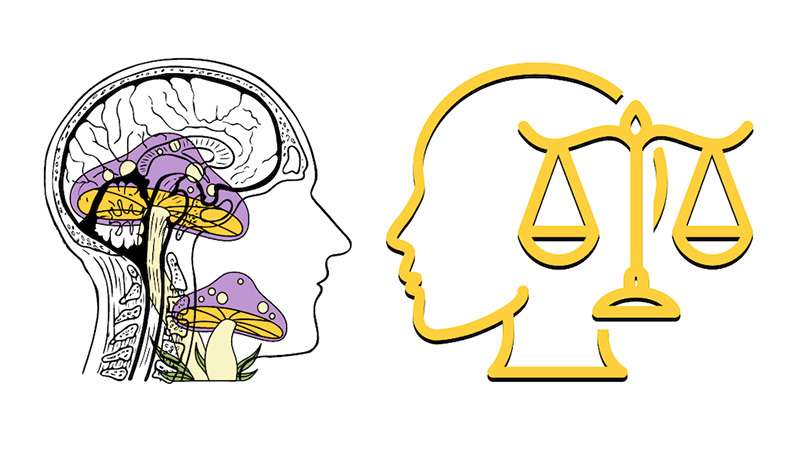Psychedelic Drugs Symposium Bridges Science, Policy, and Law

The United States is on the cusp of a psychedelic renaissance. Wall Street investors are pouring money into psychedelic drug startups. The FDA decision on the first MDMA-assisted therapy is expected in August. The University of California, Berkeley, recently established a high-profile Center for the Science of Psychedelics. The New York Times published a piece stating that “psychedelic therapy is on its way to becoming a mainstream medical treatment in mental health care.”
Everywhere you look, there is renewed interest in these hallucinogenic drugs as treatments for depression, anxiety, PTSD, substance abuse, and a myriad of other disorders.
But for all the headlines, many questions are swirling around this class of drugs. Do they really work? Are they safe? And while several municipalities and two states have decriminalized some psychedelic substances, they remain classified as Schedule I drugs, which restricts federal research funding and limits research to federally approved scientific studies. Their widespread use as therapeutic agents remains limited and controversial.
To explore these issues, American University is bringing together leading thinkers across neuroscience, medicine, policy, and law to examine the efficacy and safety effects of psychedelics drugs in medicine. On April 12, 2024, American University’s Center for Neuroscience and Behavior will host “The Therapeutic Use of Psychedelic Drugs: Legal, Policy and Neuroscientific Perspectives” symposium in partnership with the Association for Public Policy Analysis and Management (APPAM), the Health Law and Policy Program at the Washington College of Law, AU’s Department of Neuroscience, and the Food and Drug Law Institute.
Efficacy and Safety, Research and Access
The symposium will integrate neuroscience and clinical science perspectives on the efficacy and safety effects of psychedelics drugs in medicine, with discussion by academics, legal and policy experts, social scientists, and advocacy group leaders about the needs for increased access to psychedelic drugs for research and therapeutics, and the issues involved with obtaining increased access.
These issues are ethical (e.g., is conducting ethical research on these drugs with humans even feasible?), regulatory (e.g., who will have access, what credentials will they need?), legal (e.g., what criteria need to be met and obstacles overcome for decriminalization?), social (e.g., how can potential disparities in treatment availability across diverse populations be avoided?) and economic (what will be the status of psychedelic therapies in the marketplace and who will profit from them?). At present, all these topics are intertwined, and all are surrounded in controversy, says Terry Davidson, American University’s Trone Family Eminent Scholar Chair in Neuroscience and Behavior, and director of Director, AU’s Center for Neuroscience and Behavior.

“The basic idea behind this mix of perspectives is that the therapeutic use of psychedelic drugs is one very topical example of where sound science is needed to inform sound policy and law. That is, neuroscientists and legal and policy experts, along with other groups, share the goals of advancing human well-being and improving the quality of life,” Davidson explains. “However, to achieve these common goals, we have to bridge gaps in language, culture, and modes of action that distinguish, and separate, science from other disciplines, I think the symposium, which has been organized by faculty member from the WCL, the SPA, and members of CAS’s Center for Neuroscience and Behavior, represents a unique and important step toward building these bridges.”
In all, 18 nationally and internationally recognized experts will come together from institutions including Stanford University School of Medicine, the College of Physicians and Surgeons of Columbia University, Vets Inc., the US Food and Drug Administration, and Harvard Law School Project on Psychedelics Law and Regulation. They will discuss the effects of psychedelic drugs on the brain, their safety and clinical efficacy, along with the ethical implications of psychedelic drug research and therapy. Major topics also include regulatory and policy issues associated with the legalization of psychedelic drugs for research and therapeutic purposes, patient experiences, commercialization of drug therapies, and the inclusion of diverse populations in psychedelic medicine.
For More Information
The conference is in person and online, and open to the AU community. For details including a list of symposium speakers and their brief biographies, visit the symposium website. Please register online no later than April 5, 2024.
If you have questions, please direct them to Rachel Crupi, Coordinator, Center for Neuroscience and Behavior at rcrupi@american.edu.
